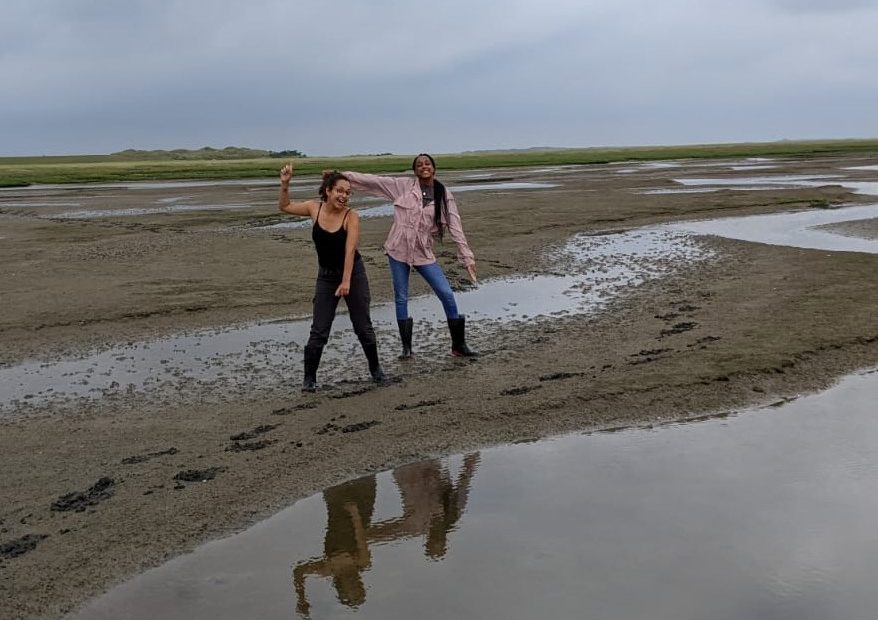This summer, I chose to intern at the Global Sustainability Scholars (GSS) program, an internship opportunity I found through UEP’s Off the Wall newsletter. GSS is a National Science Foundation and Belmont Forum funded grant program targeted towards giving underrepresented groups experience in the sustainability research world. Kirsten Rowell is the director and grant writer who makes GSS possible with the help of a diverse advisory board. This year, the funds supported 14 undergraduate and graduate students to do international and interdisciplinary research in Norway, France, Germany, Madagascar, Hawaii, and Maryland, USA. Flights and housing were procured and paid for by the program, and we received a competitive bi-weekly stipend.

One of the six global projects was working with the MARISCO project at the Helmholtz Institute of Functional Marine Biodiversity (HIFMB) in Oldenburg, Germany. MARISCO stands for Marine Research and Innovation for a Sustainable management of Coasts and Ocean and is a joint research project between the United States, South Africa, and Germany. HIFMB is an interdisciplinary research institute that houses master’s students, doctorate students, postdoctoral fellows, and professional researchers, all studying various topics related to the oceans, from microbial biodiversity to criminality at sea.
My specific task for the summer, with another intern from GSS, was to create a survey for Wadden Sea stakeholders that asks about the relationship between biodiversity change and human quality of life through the lens of Nature’s Contribution to People. The goal was to push for a slightly qualitative interpretation of existing biodiversity data that forefronts human experiences in the environment, to tug at heartstrings, and, as a result, encourage more robust conservation policies for this co-governed portion of the North Sea. The biggest challenge in creating the survey was agreeing on how to best capture information and what types of questions would elicit the data we wanted to collect. My ten weeks consisted of hard brainstorming, discussions, and many iterations of Qualtrics surveys that highlighted the joys and trials of interdisciplinary work.

Nevertheless, as this was an internship abroad at an international institute, I also learned a lot from my surroundings. Us GSS interns quickly integrated into the fabric of HIFMB, with invitations to research presentations, weekly thematic research groups, and social events that exposed me to the exciting work happening at the institute and allowed me to meet the fascinating people that makeup HIFMB. When I was out of the office, I often went to cultural happenings in downtown Oldenburg, followed the German tradition of coffee and cake, biked to nearby lakes, and practiced my German language skills. Due to this fully immersive internship, I had a fantastic summer full of learning, professional support, and friendships that will last a lifetime.

Awesome Valeria!
Comments are closed.